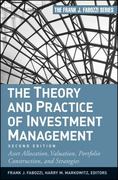Question
Intel has an EBIT of $3.4 billion and faces a marginal tax rate of 36.50%. It currently has $1.5 billion in debt out- standing, and
Intel has an EBIT of $3.4 billion and faces a marginal tax rate of 36.50%. It currently has $1.5 billion in debt out- standing, and a market value of equity of $51 billion. The beta for the stock is 1.35, and the pretax cost of debt is 6.80%. The Treasury bond rate is 6%. Assume that the firm is considering a massive increase in leverage to a 70% debt ratio, at which level the bond rating will be C 21. (with a pretax interest rate of 16%).
-
Estimate the current cost of capital.
-
Assuming that all debt gets refinanced at the new market interest rate, what would your interest ex- penses be at 70% debt? Would you be able to get the entire tax benefit? Why or why not?
-
Estimate the beta of the stock at 70% debt, using the conventional levered beta calculation. Reestimate the beta, on the assumption that C-rated debt has a beta of 0.60. Which one would you use in your cost of capital calculation?
-
Estimate the cost of capital at 70% debt.
-
What will happen to firm value if Intel moves to a 70% debt ratio? (with no growth)
-
What general lessons on capital structure would you draw for other growth firms?
Step by Step Solution
There are 3 Steps involved in it
Step: 1

Get Instant Access to Expert-Tailored Solutions
See step-by-step solutions with expert insights and AI powered tools for academic success
Step: 2

Step: 3

Ace Your Homework with AI
Get the answers you need in no time with our AI-driven, step-by-step assistance
Get Started


